by Richard William Nelson | May 11, 2013
 Embryology plays a critical role in Charles Darwin’s theory of evolution. The “leading facts in embryology … [were] second to none in importance,” he argued in The Origin of Species.
Embryology plays a critical role in Charles Darwin’s theory of evolution. The “leading facts in embryology … [were] second to none in importance,” he argued in The Origin of Species.
Illustrations of embryos by Ernst Haeckel, a German biologist, influenced Darwin. Haeckel’s drawings depict embryos repeating the steps of evolution, a concept known as the “ontogeny recapitulates phylogeny” theory.
It is believed that genes drive evolution through the process of natural selection. Since turtles have a unique body plan, studying the turtle genome during embryonic development is expected to give insight into their origin.
Continue Reading
by Richard William Nelson | Apr 30, 2013
 “Natural selection” is the name Charles Darwin used to describe the mechanism driving evolution and the origin of species. The title of his book was The Origin of Species by Means of Natural Selection. Natural selection was the “means” of evolution, the fundamental tenet of Darwin’s theory.
“Natural selection” is the name Charles Darwin used to describe the mechanism driving evolution and the origin of species. The title of his book was The Origin of Species by Means of Natural Selection. Natural selection was the “means” of evolution, the fundamental tenet of Darwin’s theory.
Natural selection emerged as the cornerstone law of evolution following the publication of The Origin in 1859. “I do believe,” Darwin argued, “natural selection acts slowly by accumulating slight, successive, favorable variations.”
Natural selection, the tenet of Darwin’s theory, when viewed through the lens of twenty-first-century technologies, increasingly faces scientific challenges.
Continue Reading
by Richard William Nelson | Apr 23, 2013
 The long-awaited analysis of one of the most influential lobed-finned fish in evolutionary history, the coelacanth genome (pictured left), was published last week by Chris T. Amemiya (pictured right below) of the University of Washington and Jessica Alföldi from MIT and Harvard in the prestigious journal Nature.
The long-awaited analysis of one of the most influential lobed-finned fish in evolutionary history, the coelacanth genome (pictured left), was published last week by Chris T. Amemiya (pictured right below) of the University of Washington and Jessica Alföldi from MIT and Harvard in the prestigious journal Nature.
The coelacanth plays a crucial and colorful role in the history of evolution.
Biologist Louis Agassiz, born in Switzerland, became a professor at Harvard University and founder of the Museum of Comparative Biology and was the first to describe and name the fish in 1839. Ironically, Agazzi became a leading critic of Charles Darwin.
Continue Reading
by Richard William Nelson | Apr 13, 2013

A research team led by Michael Blaber of Florida State University College of Medicine recently reported a solution to a problem with the “protein-first,” also known as the protein self-assembly origin of life theory. The issue involves protein folding.
Biologically active proteins are only functional when folded into specific molecular structures.
Proteins’ ability to fold into specific structures is essential to performing cellular functions. While the team’s approach aligns with Charles Darwin’s theory, the protein self-assembly origin of life competes with the popular “RNA-first” origin of life theory.
Continue Reading
by Richard William Nelson | Feb 19, 2013
 “The origin of life on Earth is a scientific problem,” according to WIKIPEDIA, “which is not yet solved. There are many ideas but few clear facts.”
“The origin of life on Earth is a scientific problem,” according to WIKIPEDIA, “which is not yet solved. There are many ideas but few clear facts.”
In 2013, Princeton University hosted an international Origin of Life conference to address this issue.
In the nineteenth century, the “spontaneous generation” theory had long been the prevailing natural explanation for the origin of life, dating back to Greek philosophy. Even Charles Darwin, centuries later, endorsed the theory in The Origin of Species (1859).
Continue Reading
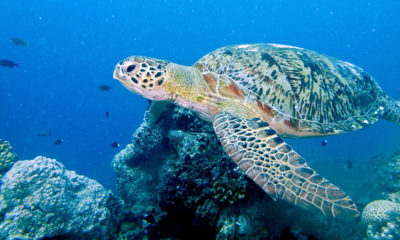 Embryology plays a critical role in Charles Darwin’s theory of evolution. The “leading facts in embryology … [were] second to none in importance,” he argued in The Origin of Species.
Embryology plays a critical role in Charles Darwin’s theory of evolution. The “leading facts in embryology … [were] second to none in importance,” he argued in The Origin of Species.
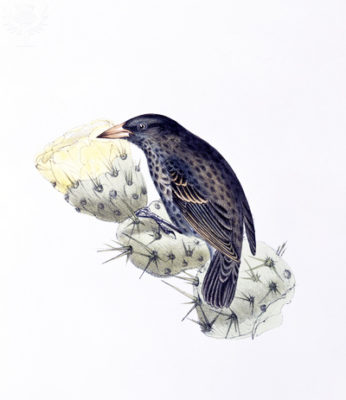 “
“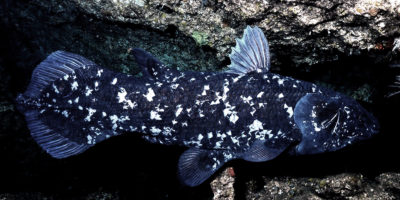 The long-awaited analysis of one of the most influential lobed-finned fish in evolutionary history, the coelacanth genome (pictured left), was published last week by
The long-awaited analysis of one of the most influential lobed-finned fish in evolutionary history, the coelacanth genome (pictured left), was published last week by 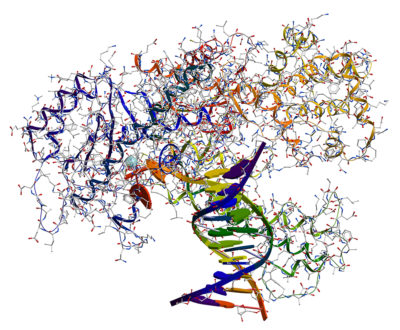
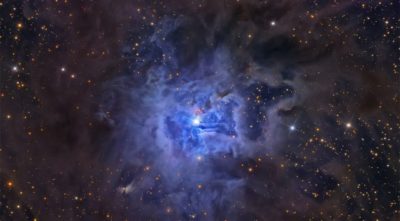 “The origin of life on
“The origin of life on 